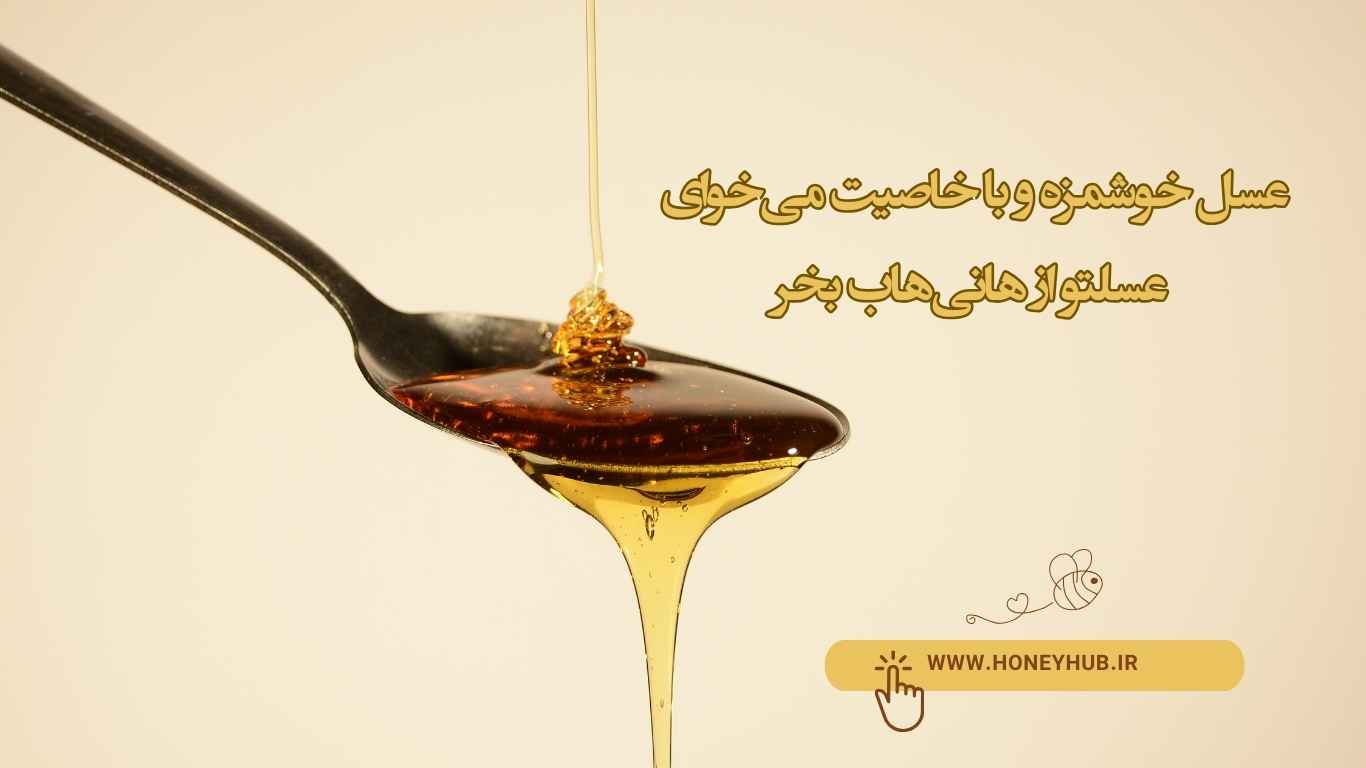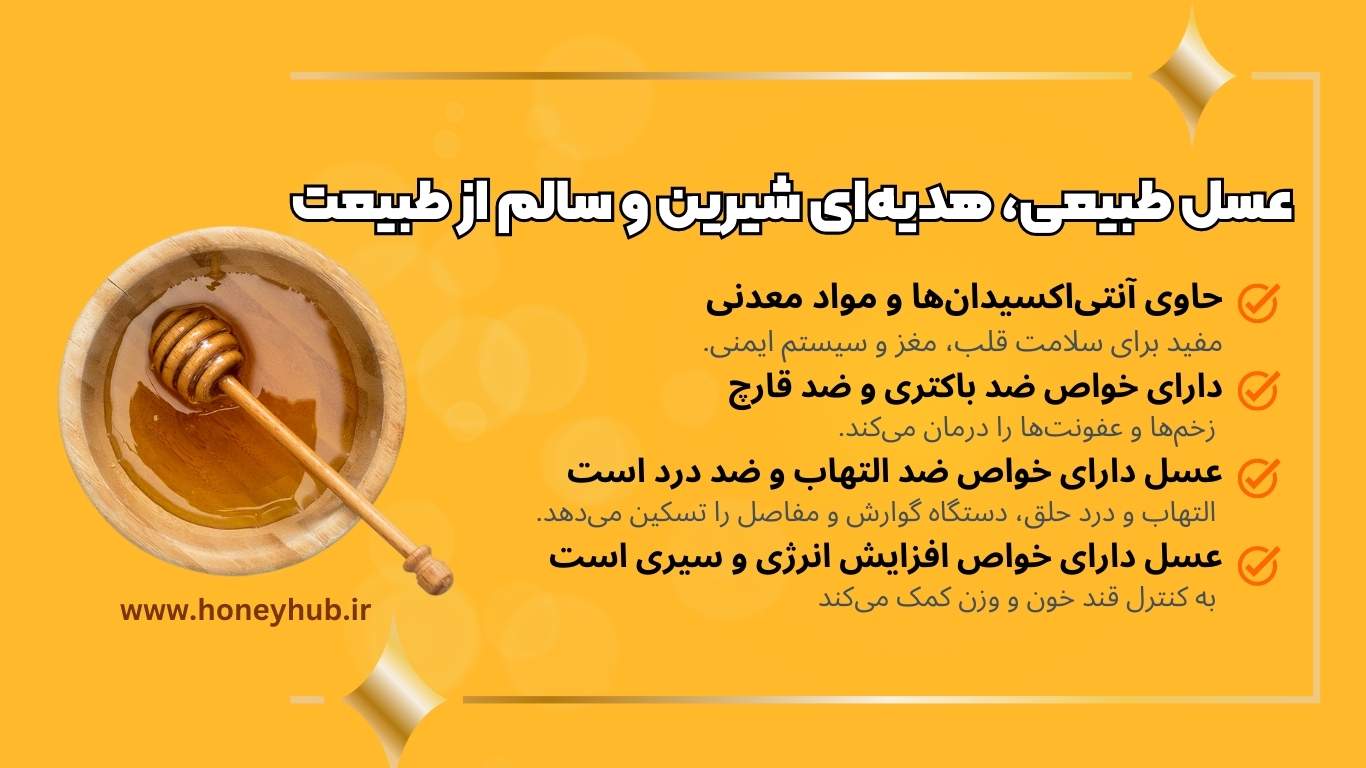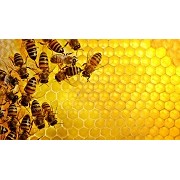Learn about the unique properties of sunflower honey, its health benefits, rich history, and how to identify pure,...
10 surprising benefits of honey for health
Honey is an ancient food
Honey has been used as food and medicine since ancient times. Honey has many plant compounds, medicinal and beneficial bee secretions, and many benefits for human health. Honey is very healthy, especially compared to refined sugar, 100% calories. Considering the importance of honey in health and mental health, in this post, we will examine the fantastic properties of this healing substance in several sections. Please stay with us until the end.
Honey is a rich source of nutrients
Honey is a sweet, thick liquid made by honey bees. Bees collect sugars - mainly from the nectar of sugar-rich flowers - from their environment (1). After entering the hive, they repeatedly consume, digest, and revive the nectar. The final product is honey, a liquid used as stored food for honey bees. Its smell, color, and taste depend on the types of flowers visited.
Nutritionally, one tablespoon of honey (21 grams) contains 64 calories and 17 grams of sugar, including fructose, glucose, maltose, and sucrose. It contains almost no fiber, fat, and protein(2). It also contains trace amounts - below 1% of several vitamins and minerals, but you need to eat more to meet your daily needs.
Where honey shines is its bioactive and antioxidant content. Dark types are even more abundant in these compounds than lighter ones (3, 4)

Honey is a thick and sweet liquid made by honey bees. It has many compounds, including natural sugars, enzymes, flavonoids, vitamins, and minerals, which may have therapeutic and healing effects.
2- Honey is rich in antioxidants
High quality honey contains many important antioxidants. These include organic acids and phenolic compounds such as flavonoids (5). Scientists believe that the combination of these compounds gives the antioxidant (5). Interestingly, two studies have shown that buckwheat honey increases the amount of antioxidants in your blood (6, 7). Antioxidants are associated with reduced risk of heart attacks, strokes, and some types of cancer. They may also promote eye health (8).
Honey contains a number of antioxidants, including phenolic compounds such as flavonoids.
3-Honey is less harmful for diabetics
Evidence on honey and diabetes is mixed. On the one hand, it can reduce several common heart disease risk factors in people with type 2 diabetes. For example, it may reduce "bad" LDL cholesterol, triglycerides, and inflammation while increasing "good" HDL cholesterol (9, 10, 11).
10). Although honey may be slightly better for people with diabetes than refined sugar, it should still be used cautiously. People with diabetes may do best by minimizing all high-carbohydrate foods (12). .
Keep in mind that certain types of honey may be adulterated with simple syrup. Although honey adulteration is illegal in most countries, it remains a widespread problem (13).
Some studies show that honey improves heart disease risk factors in diabetics. However, it also raises blood sugar levels, so it is not generally recommended for people with diabetes. Although the sayings are different, they should be used with caution and doctor's advice.

Pure Iranian honeys
Have pure Iranian honeys at home. Honey Hub is the gateway to Iran's natural honey buy honey
4. Help reduce blood pressure
Blood pressure is one of the dangerous factors of heart diseases, and honey may help to reduce it. This is because it contains antioxidant compounds that have been linked to lowering blood pressure (14). Studies on rats have shown that the amount of blood pressure caused by honey consumption is relatively low (15, 16).
Eating honey may lead to a moderate reduction in blood pressure, a significant risk factor for heart disease.
5. Helps improve cholesterol
High LDL cholesterol levels are a risk factor for heart disease. This type of cholesterol plays a major role in atherosclerosis, the buildup of fat in your arteries that can lead to heart attacks and strokes. Interestingly, several studies show that honey may improve your cholesterol levels.
It lowers total and "bad" LDL cholesterol while significantly raising HDL cholesterol. Increases "good" (9 , 10, 11 , 17). For example, one study in 55 patients compared honey to table sugar and found that honey lowered LDL cholesterol by 5.8 percent and HDL cholesterol by 3.3 percent. It also resulted in a mean weight loss of 1.3% (18). .
Honey has a positive effect on cholesterol levels. It results in a moderate reduction of total and "bad" LDL cholesterol while lowering "good" HDL cholesterol.
6. Lower triglycerides
Increased blood triglycerides is another risk factor for heart disease. They are also associated with insulin resistance, the main cause of type 2 diabetes. Triglyceride levels increase in diets containing sugar and refined carbohydrates. Interestingly, several studies have linked regular honey consumption to lower triglyceride levels, especially when used as a sugar substitute (9, 10, 11, 17).
For example, in a study comparing honey and sugar, 11 to 19 percent lower triglyceride levels in the honey group (18) found.
Elevated triglycerides are a risk factor for heart disease and type 2 diabetes. Several studies show that honey can lower triglyceride levels, mainly as a sugar substitute.
7. Beneficial effects on heart health
Again, honey is a rich source of phenols and other antioxidant compounds. Many of these are associated with a reduced risk of heart disease (8). They may dilate the blood vessels in your heart and cause increased blood flow to your heart. They may also help prevent blood clots, which can lead to heart attacks and strokes (8). Additionally, a study in mice showed that honey protects the heart from oxidative stress (19</a >). All told, no long-term human studies are available on honey and heart health. Take these results with a grain of salt.
Antioxidants in honey have been linked to beneficial effects on heart health, including increasing blood flow to your heart and reducing the risk of blood clots.
8- Honey heals burns and wounds
The local treatment of honey has been used to heal wounds and burns since ancient Egypt and is still common today. A review of 26 studies on honey and wound care found honey to be effective in healing partial-thickness burns and post-surgically infected wounds (20).
Honey is also an effective treatment for diabetic foot ulcers, which are serious complications that can lead to amputation (21, 22). One study reported a 43.3% success rate with honey as a wound treatment. In another study, topical honey healed 97% of patients' diabetic ulcers (22, 23). Researchers believe that the healing power of honey comes from its antibacterial and anti-inflammatory effects, as well as its ability to nourish the surrounding tissue (24)
In addition, it can be used to treat other skin diseases, including psoriasis lesions and herpes (25, 27) help. Manuka honey is particularly effective for treating burn wounds (28).
When applied to the skin, honey can be part of an effective treatment plan for burns, wounds, and many other skin conditions. It is especially effective for diabetic foot ulcers.

9. Help suppress cough in children
Cough is a common problem in children with upper respiratory tract infections. These infections can affect the sleep and quality of life of children and parents. However, the main cough medicines are ineffective and can have side effects. Interestingly, honey may be a better choice and evidence shows that it is very effective (28, 29). One study found that honey worked better than two common cough medicines ( 30). Another study found that it reduced cough symptoms and improved sleep more than cough medicines (29).
However, due to the risk of botulism, honey should never be given to children under one year of age (31).
Honey can act as a natural and safe cough suppressant for children over one year of age. Some studies show that it is even more effective than cough medicine.
10. It's delicious but still high in calories and sugar
Honey is a delicious and healthy alternative to sugar. Be sure to choose a high-quality brand, as some low-quality brands may mix with the syrup. Remember that honey should only be consumed in moderation, as it is still high in calories and sugar. The benefits of honey are greater when it replaces another unhealthy sweetener.
At the end of the day, honey is simply a "better" sweetener than sugar and better than high fructose corn syrup.
Leave a comment
Log in to post comments
Related posts
 Honey Hub, a treasure trove of nature's amazing products
Honey Hub, a treasure trove of nature's amazing products Why does pollen improve your health?
Why does pollen improve your health?



















Latest comments